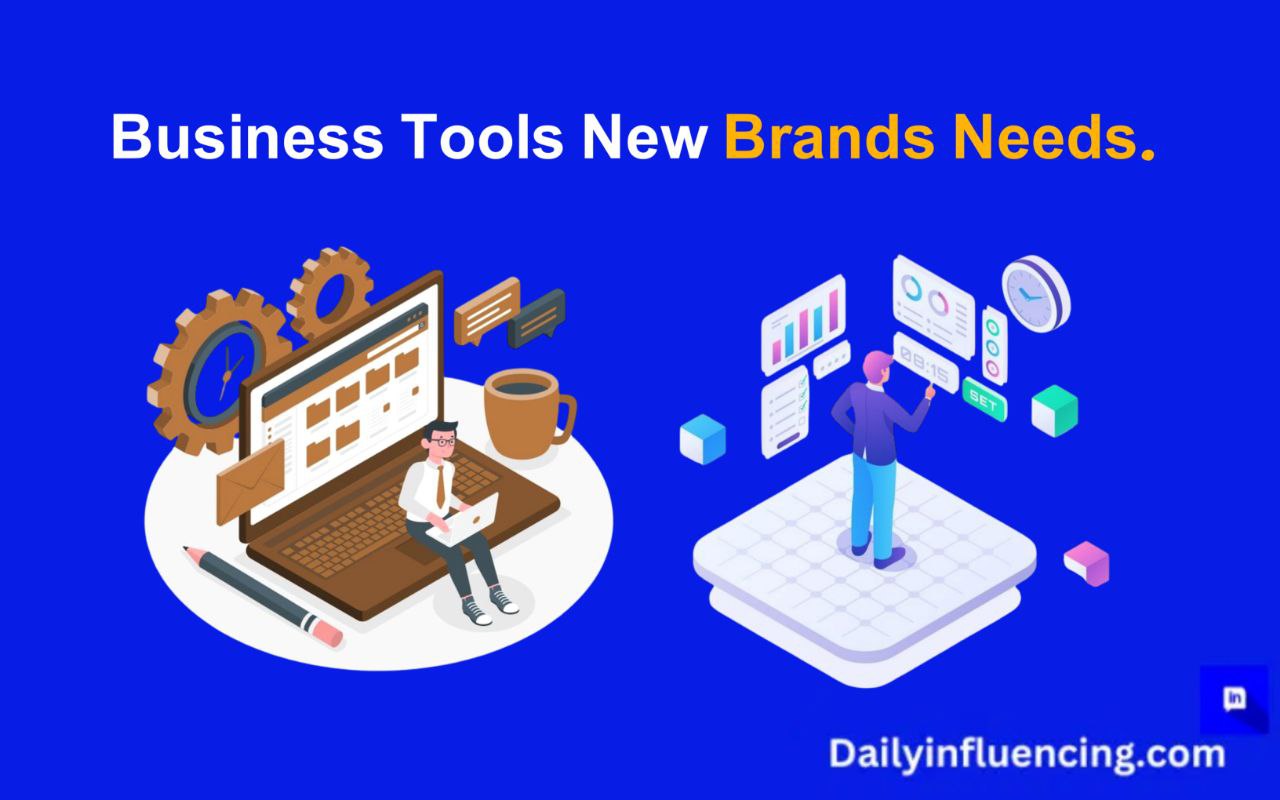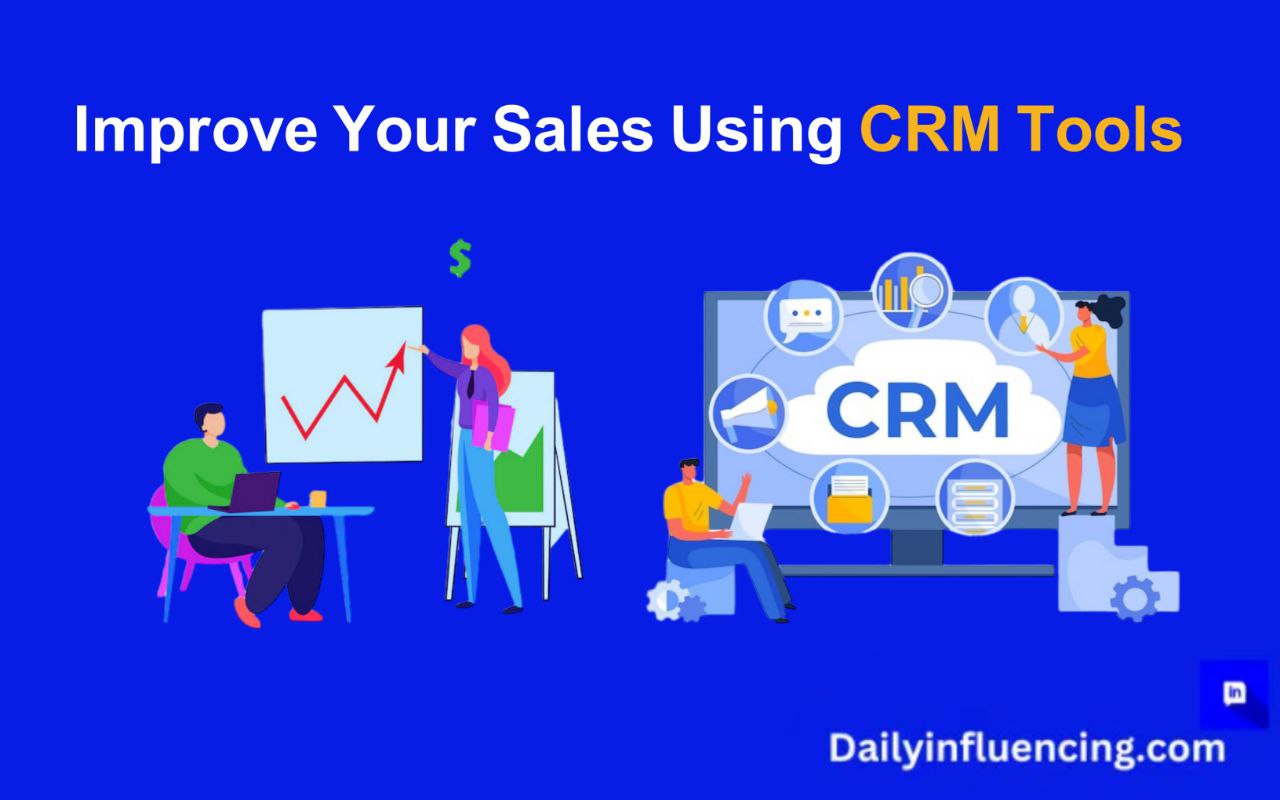
Starting a new brand is exciting but can also be challenging. To turn your vision into reality, having the right business tools can make all the difference. Think of these business tools as a set of helping hands, streamlining your workflow and setting you up for success.
However, some of these top business tools provide a permanently free plan, which allows customers to use the tool for free indefinitely. Some tools can be purchased or subscribed to on a monthly or annual basis, while others are available for free.
Therefore, in this guide, we’ll break down the top 10 business tools that every new brand needs to thrive. Each tool serves a unique purpose, from building your online presence to managing your team and customers. Even if you’re new to the world of business, this guide will help you understand the essentials of each tool in a way that’s easy to understand. Let’s delve in!
Business Tools New Brands Need to Succeed

Here are amazing business tools listed and explained in detail for your new business.
1. Website Builders
The world has gone digital therefore, having a website is important for your new business. Website is the online “home” for your brand and one of the most important business tools to establish credibility. A website tells people who you are, what you offer, and how they can connect with you.
Best Options:
Wix: wix is a beginner-friendly website builder with easy-to-use drag-and-drop features. If you’re looking for a website builder business tools, wix is a go get.
Squarespace: Squarespace is another business tool that will help you in setting up an online store, managing your website, and creating an online presence. Squarespace provides a fantastic solution for both individual users and new business owners because of its reasonable prices and user-friendly layout.
WordPress: One of the most powerful business tools for website creation is WordPress, perfect for those who want flexibility and scalability.
How It Helps: Website builders are important business tools that help you create a professional website without needing coding knowledge. They offer templates, hosting, and support, allowing you to customize your website and make updates as your brand grows.
2. Social Media Management Tools
Social media is a powerful way to reach and connect with your customers, but managing multiple accounts can be time-consuming. However, social media management tools can help streamline this process, letting you plan, schedule, and track your posts across different platforms.
Best Options:
Buffer: Buffer is a unique and simple yet effective business tool for scheduling posts on various social media channels.
Hootsuite: This offers a comprehensive dashboard, making it one of the most versatile business tools for brands with a large social presence.
Later: One best business tool popular for visual content on Instagram and Pinterest is later. It lets you plan and schedule posts with ease.
How It Helps: Social media management tools are essential business tools that save time and improve consistency. With features like analytics and engagement tracking, these tools help you understand your audience and boost your brand’s online visibility.
3. Email Marketing Platforms
Email marketing is one of the most direct and effective ways to engage your customers. Email marketing platforms are business tools that allow you to build email lists, send newsletters, and track engagement, helping you stay connected with your audience.
Best Options:
Mailchimp: One of the most popular business tools for email marketing, Mailchimp offers templates, automation, and analytics.
ConvertKit: ConvertKit, Known for its user-friendly interface, is one business tool that is great for brands looking to grow their email list with advanced features.
Constant Contact: This business tool provides excellent support and customization options, making it ideal for new brands that need a little extra guidance.
How It Helps: Email marketing platforms makes the process easy for reaching your customers and can automate important tasks, like sending welcome emails to new subscribers. These business tools give you insights into what works, so you can refine your approach and build stronger customer relationships.
4. Graphic Design Tools
Visual content is essential for making your brand memorable and to attract attention. Graphic design business tools empower you to create eye-catching visuals, even if you’re not a design expert.
Best Options:
Canva: Canva is an accessible design tool for beginners, offering templates for social media, logos, and more. With the help of Canva you can easily create amazing designs for your new business.
Adobe Spark: This is great for quick designs and easy-to-create videos, one of the more unique business tools for startups.
Piktochart: Piktochart focuses on infographics, perfect for data-driven visuals that need to be visually engaging.
How It Helps: Graphic design tools help you create professional visuals without even hiring a designer. As one of the essential business tools, they allow you to build a unique brand image with ease, boosting engagement and making your content more attractive to your audience.
5. Project Management Software
Staying organized is ideal when you’re running multiple tasks. Now, project management software is one of the most important business tools for managing your team, setting deadlines, and tracking progress. It ensures that everyone is on the same page.
Best Options:
Trello: one of the business tools that uses boards and cards to organize tasks, perfect for brands that need a simple visual tool is trello.
Asana: Asana offers more advanced features like task dependencies and timeline views, ideal for larger projects.
ClickUp: ClickUp is an All-in-one business tool with customizable features, making it one of the most adaptable business tools available.
How It Helps: Project management software keeps your team aligned and helps you stay on top of deadlines. With these business tools, you can monitor productivity, streamline communication, and ensure that projects stay on track.
6. Customer Relationship Management (CRM) Tools
Building strong relationships with customers is necessary for the growth of your business. CRM tools are business tools that help you organize customer information, track interactions, and manage leads, ensuring that your customer service is top-notch.
Best Options:
HubSpot CRM: This is a free and beginner-friendly business tool, with features for tracking customer information and interactions.
Salesforce: Salesforce is a powerful CRM business tool for brands that plan to scale, offering advanced customization options.
Zoho CRM: This also offers automation and integration options, making it an affordable yet effective business tool for small businesses.
How It Helps: CRM tools enable you to track customer data, helping you understand your audience better and nurture leads. These tools provide a centralized location for customer information, making it easier to provide personalized and responsive service.
7. Accounting Software
Proper financial management is crucial for any business. Accounting software helps you track income, expenses, and taxes, so you can make informed financial decisions. With these tools, it will be easier to run your day-to-day activities and know if you’re making profits or losses.
Best Options:
QuickBooks: as a new business or brand, QuickBooks can provide you with business tools for invoicing, expenses, and reporting.
FreshBooks: FreshBooks, known for its ease of use and excellent customer support, makes it an ideal tool for freelancers and startups or new businesses.
Xero: This is a cloud-based that is integrated with other software, perfect for businesses looking to carry out financial tasks.
How It Helps: Accounting software simplifies bookkeeping, reducing errors and saving time. As a core business tool, it also provides insights into your financial health, which can be important for planning and scaling your brand.
8. E-commerce Platforms
If you’re selling products, an e-commerce platform is an essential tool. These business tools help you set up an online store, manage inventory, and process payments easily with your customers.
Best Options:
Shopify: Shopify is easy to use with a variety of templates, ideal for new brands looking to start selling quickly.
WooCommerce: This is designed for WordPress, and it is perfect for brands that already have a WordPress website.
BigCommerce: This offers scalability, making it an excellent tool for brands planning to expand.
How It Helps: E-commerce platforms simplify the process of setting up an online store. As business tools, they provide everything you need to start selling online, from managing products to processing payments securely.
9. Analytics Tools
Analytics tools are tools that help you track performance and understand customer behavior. They provide data that helps you make informed decisions, optimize marketing efforts, and grow your brand.
Best Options:
Google Analytics: Free and comprehensive, Google Analytics offers insights into your website traffic and user behavior.
Hotjar: This provides heatmaps and session recordings, useful for understanding how users interact with your site.
SEMrush: This focuses on search engine optimization (SEO), helping you improve your search engine rankings and visibility.
How It Helps: Analytics tools help you understand what’s working and where there’s room for improvement. These business tools allow you to make data-driven decisions, enhancing your marketing strategies and increasing return on investment (ROI).
10. File Sharing and Cloud Storage
With file sharing and cloud storage tools, you can store important documents securely and access them from anywhere. These business tools are essential for collaborating, especially if your team works remotely.
Best Options:
Google Drive: Google Drive offers free storage with Google integration, making it easy to store, share, and edit your documents.
Dropbox: Dropbox is another important tool that is known for its simplicity and reliable file-sharing abilities. As a new business, this can serve you for storing your documents
OneDrive: Integrated with Microsoft Office, OneDrive is ideal for brands that already use Microsoft business tools.
How It Helps: File sharing and cloud storage business tools keep your files secure and accessible from any location. These tools are perfect for collaboration, allowing you to share files and work together in real-time.
Conclusion
New businesses face unique challenges, but with the right tools and resources, you can overcome obstacles and achieve success. By leveraging these top tools and resources, you’ll be better equipped to manage projects, drive marketing efforts, streamline finance, enhance productivity, and grow your business.
With these top 10 business tools, new brands have the essentials to succeed in today’s competitive environment. From building a professional website to managing social media, tracking customers, and analyzing performance.
Remember, the key to success lies in finding the right combination of business tools that work for your business. Experiment, adapt, and continuously improve your workflow to reach new heights!
Frequently Asked questions On Business Tools
What are the most useful business tools?
- Slack
- QuickBooks
- Payroll
- Trelo
- Asana
- Calendly
- Google Analytics
- Google Docs
- HubSpot CRM
- MailChimp
What is the importance of business tools?
A business tool is an application or piece of software designed to help organizations conduct their operations efficiently and effectively. Not only do these tools empower businesses to stay connected with their employees and customers, but they also help you stay competitive in the marketplace.
What is the advantage of having a tool in making a business?
Business tools are crucial because they streamline processes, improve efficiency, and enhance communication within a company. Using these tools can lead to better management, less waste of resources, and increased productivity.





